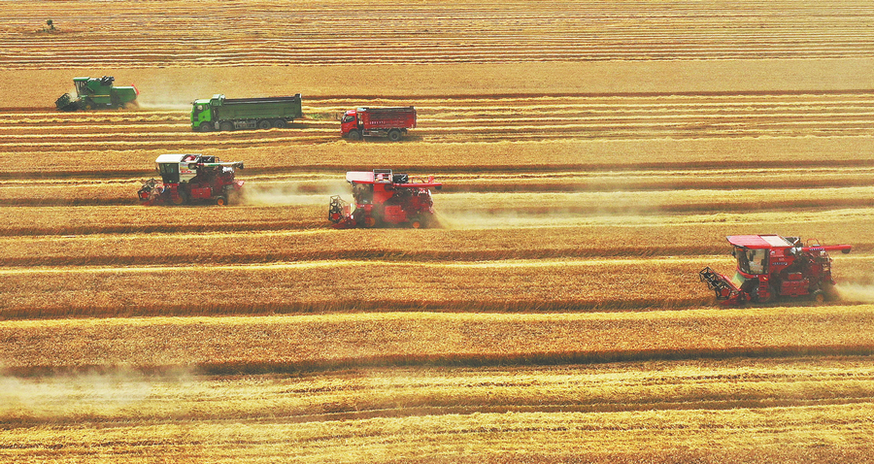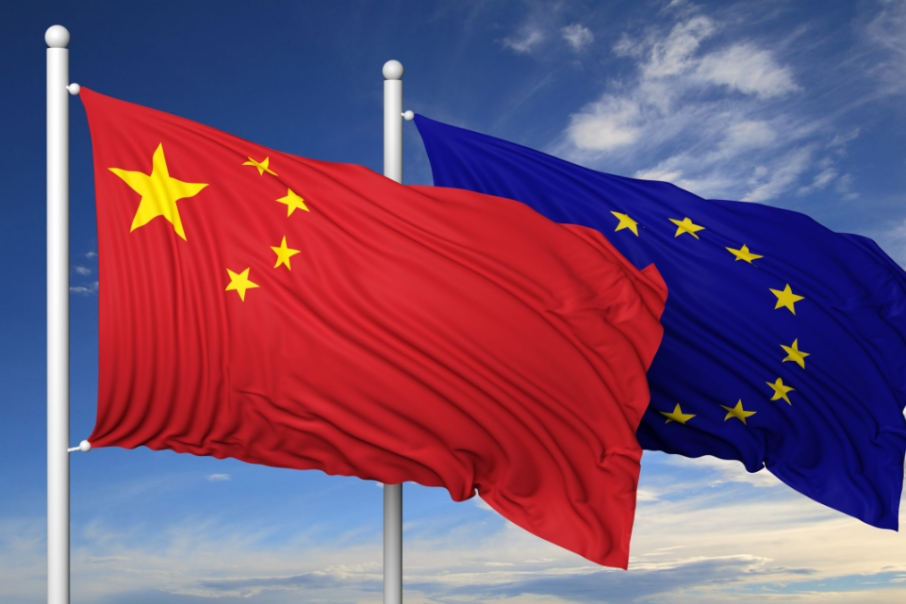China shares practices in protecting global food security


China has greatly contributed to global food security by successfully feeding its population of 1.4 billion and deepening international cooperation, a Chinese delegate said on Tuesday at the 2023 United Nations Food Systems Summit, or UNFSS, in Rome, Italy.
The delegate made the remarks at a plenary session where national representatives shared their successes and bottlenecks in resetting a resilient, equitable and sustainable food system in support of the UN Sustainable Development Goals.
"Thanks to our efforts, China's food production has totaled over 650 million metric tons over the past eight years. China has been self-reliant in successfully feeding 20 percent of the global population, making a remarkable contribution in safeguarding global security, peace and stability," he said.
The achievement of being the world's largest food producer came despite arable land in China accounting for less than 9 percent of the global total and the nation's freshwater resources accounting for just 6 percent.
According to the National Food and Strategic Reserves Administration, China secured a bumper harvest for the 19th year in a row this year, with the country's staple food self-sufficiency rate reaching above 100 percent.
The Chinese delegate also said China has done more since 2021 to accelerate food systems transformation by improving laws and regulations, scaling up innovation and financing, and deepening international cooperation, especially through South-South and Triangular Cooperation.
Triangular cooperation involves Southern-driven partnerships between two or more developing countries supported by developed countries or multilateral organizations.
According to China's Foreign Ministry spokeswoman Mao Ning, China has provided more funding and experts, and undertaken more projects than any other developing country under the framework of the South-South Cooperation Program facilitated by the UN's Food and Agriculture Organization.
Agricultural cooperation
"China has carried out agricultural cooperation with more than 140 countries and regions, and provided more than 1,000 agricultural technologies to other developing countries, driving up local crop yield by 30 to 60 percent on average," Mao said at a daily news conference on Tuesday.
"China has trained over 14,000 technicians on hybrid rice technology from over 80 developing countries. China has helped launch 13 demonstration villages on agricultural development and poverty reduction in Africa."
The three-day 2023 UNFSS, which opened on Monday, follows from the 2021 UNFSS meeting and aims to review the progress of global food systems transformation over the past two years.
The summit, convened by UN Secretary-General Antonio Guterres and hosted by the government of Italy, has drawn around 2,000 attendees from 161 countries, including 22 heads of state, more than 100 ministerial delegates and over 150 nongovernmental organizations.
In his address on the opening day, Guterres said global food systems are "broken" and "the most vulnerable will pay the highest price", before urging governments to increase affordable long-term financing for all countries in need, by at least $500 billion a year.
Zheng Wanyin contributed to this story.

































